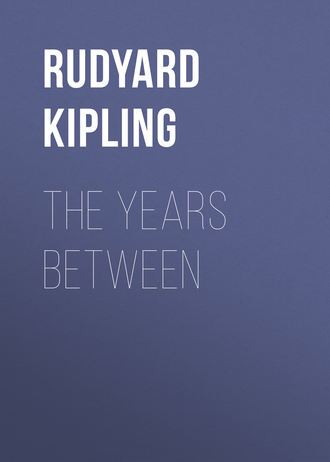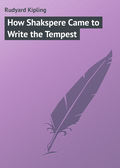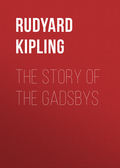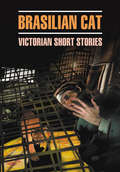полная версия

Редьярд Джозеф Киплинг
The Years Between
THE IRISH GUARDS
1918
We're not so old in the Army List,
But we're not so young at our trade,
For we had the honour at Fontenoy
Of meeting the Guards' Brigade.
'Twas Lally, Dillon, Bulkeley, Clare,
And Lee that led us then,
And after a hundred and seventy years
We're fighting for France again!
Old Days! The wild geese are flighting,
Head to the storm as they faced it before!
For where there are Irish there's bound to be fighting,
And when there's no fighting, it's Ireland no more!
Ireland no more!
The fashion's all for khaki now,
But once through France we went
Full-dressed in scarlet Army cloth,
The English – left at Ghent
They're fighting on our side to-day.
But, before they changed their clothes,
The half of Europe knew our fame,
As all of Ireland knows!
Old Days! The wild geese are flying,
Head to the storm as they faced it before!
For where there are Irish there's memory undying,
And when we forget, it is Ireland no more!
Ireland no more!
From Barry Wood to Gouzeaucourt,
From Boyne to Pilkem Ridge,
The ancient days come back no more
Than water under the bridge
But the bridge it stands and the water runs
As red as yesterday,
And the Irish move to the sound of the guns
Like salmon to the sea.
Old Days! The wild geese are ranging,
Head to the storm as they faced it before!
For where there are Irish their hearts are unchanging,
And when they are changed, it is Ireland no more!
Ireland no more!
We're not so old in the Army List,
But we're not so new in the ring,
For we carried our packs with Marshal Saxe
When Louis was our King.
But Douglas Haig's our Marshal now
And we're King George's men,
And after one hundred and seventy years
We're fighting for France again!
Ah, France! And did we stand by you,
When life was made splendid with gifts and rewards?
Ah, France! And will we deny you
In the hour of your agony, Mother of Swords?
Old Days! The wild geese are flighting,
Head to the storm as they faced it before!
For where there are Irish there's loving and fighting,
And when we stop either, it's Ireland no more!
Ireland no more!
A NATIVITY
1916
The Babe was laid in the Manger
Between the gentle kine —
All safe from cold and danger —
'But it was not so with mine.
(With mine! With mine!)
'Is it well with the child, is it well?'
The waiting mother prayed.
'For I know not how he fell,
And I know not where he is laid.'
A Star stood forth in Heaven,
The watchers ran to see
The Sign of the Promise given —
'But there comes no sign to me.
(To me! To me!)
'My child died in the dark.
Is it well with the child, is it well?
There was none to tend him or mark,
And I know not how he fell.'
The Cross was raised on high;
The Mother grieved beside —
'But the Mother saw Him die
And took Him when He died.
(He died! He died!)
'Seemly and undefiled
His burial-place was made —
Is it well, is it well with the child?
For I know not where he is laid.'
On the dawning of Easter Day
Comes Mary Magdalene;
But the Stone was rolled away,
And the Body was not within —
(Within! Within!)
'Ah, who will answer my word?'
The broken mother prayed.
'They have taken away my Lord,
And I know not where He is laid.'
The Star stands forth in Heaven.
The watchers watch in vain
For a Sign of the Promise given
Of peace on Earth again —
(Again! Again!)
'But I know for Whom he fell' —
The steadfast mother smiled
'Is it well with the child – is it well?
It is well – it is well with the child!'
EN-DOR
'Behold there is a woman that hath a familiar spirit at En-dor'
1 Samuel XXVIII 7
The road to En-dor is easy to tread
For Mother or yearning Wife.
There, it is sure, we shall meet our Dead
As they were even in life.
Earth has not dreamed of the blessing in store
For desolate hearts on the road to En-dor.
Whispers shall comfort us out of the dark —
Hands – ah God! – that we knew!
Visions and voices – look and heark! —
Shall prove that our tale is true,
And that those who have passed to the further shore
May be hailed – at a price – on the road to En-dor.
But they are so deep in their new eclipse
Nothing they say can reach,
Unless it be uttered by alien lips
And framed in a stranger's speech.
The son must send word to the mother that bore,
Through an hireling's mouth. 'Tis the rule of En-dor.
And not for nothing these gifts are shown
By such as delight our dead.
They must twitch and stiffen and slaver a groan
Ere the eyes are set in the head,
And the voice from the belly begins. Therefore
We pay them a wage where they ply at En-dor.
Even so, we have need of faith
And patience to follow the clue.
Often, at first, what the dear one saith
Is babble, or jest, or untrue.
(Lying spirits perplex us sore
Till our loves – and our lives – are well known at En-dor)…
Oh the road to En-dor is the oldest road
And the craziest road of all!
Straight it runs to the Witch's abode,
As it did in the days of Saul,
And nothing has changed of the sorrow in store
For such as go down on the road to En-dor!
A RECANTATION
(TO LYDE OF THE MUSIC HALLS)
What boots it on the Gods to call?
Since, answered or unheard,
We perish with the Gods and all
Things made – except the Word.
Ere certain Fate had touched a heart
By fifty years made cold,
I judged thee, Lyde, and thy art
O'erblown and over-bold.
But he – but he, of whom bereft
I suffer vacant days —
He on his shield not meanly left —
He cherished all thy lays.
Witness the magic coffer stocked
With convoluted runes
Wherein thy very voice was locked
And linked to circling tunes.
Witness thy portrait, smoke-defiled,
That decked his shelter-place.
Life seemed more present, wrote the child,
Beneath thy well-known face.
And when the grudging days restored
Him for a breath to home,
He, with fresh crowds of youth, adored
Thee making mirth in Rome.
Therefore, I, humble, join the hosts,
Loyal and loud, who bow
To thee as Queen of Songs – and ghosts —
For I remember how
Never more rampant rose the Hall
At thy audacious line
Than when the news came in from Gaul
Thy son had – followed mine.
But thou didst hide it in thy breast
And, capering, took the brunt
Of blaze and blare, and launched the jest
That swept next week the front.
Singer to children! Ours possessed
Sleep before noon – but thee,
Wakeful each midnight for the rest,
No holocaust shall free.
Yet they who use the Word assigned,
To hearten and make whole,
Not less than Gods have served mankind,
Though vultures rend their soul.
MY BOY JACK
'Have you news of my boy Jack?'
Not this tide.
'When d'you think that he'll come back?'
Not with this wind blowing, and this tide.
'Has any one else had word of him?'
Not this tide.
For what is sunk will hardly swim,
Not with this wind blowing, and this tide.
'Oh, dear, what comfort can I find?'
None this tide,
Nor any tide,
Except he did not shame his kind—
Not even with that wind blowing, and that tide.
Then hold your head up all the more,
This tide,
And every tide;
Because he was the son you bore,
And gave to that wind blowing and that tide!
THE VERDICTS
(JUTLAND)
Not in the thick of the fight,
Not in the press of the odds,
Do the heroes come to their height,
Or we know the demi-gods.
That stands over till peace.
We can only perceive
Men returned from the seas,
Very grateful for leave.
They grant us sudden days
Snatched from their business of war;
But we are too close to appraise
What manner of men they are.
And, whether their names go down
With age-kept victories,
Or whether they battle and drown
Unreckoned, is hid from our eyes.
They are too near to be great,
But our children shall understand
When and how our fate
Was changed, and by whose hand.
Our children shall measure their worth.
We are content to be blind
But we know that we walk on a new-born earth
With the saviours of mankind.
MESOPOTAMIA
1917
They shall not return to us, the resolute, the young,
The eager and whole-hearted whom we gave:
But the men who left them thriftily to die in their own dung,
Shall they come with years and honour to the grave?
They shall not return to us, the strong men coldly slain
In sight of help denied from day to day:
But the men who edged their agonies and chid them in their pain,
Are they too strong and wise to put away?
Our dead shall not return to us while Day and Night divide —
Never while the bars of sunset hold:
But the idle-minded overlings who quibbled while they died,
Shall they thrust for high employments as of old?
Shall we only threaten and be angry for an hour?
When the storm is ended shall we find
How softly but how swiftly they have sidled back to power
By the favour and contrivance of their kind?
Even while they soothe us, while they promise large amends,
Even while they make a show of fear,
Do they call upon their debtors, and take council with their friends,
To confirm and re-establish each career?
Their lives cannot repay us – their death could not undo —
The shame that they have laid upon our race:
But the slothfulness that wasted and the arrogance that slew,
Shall we leave it unabated in its place?
THE HYÆNAS
After the burial-parties leave
And the baffled kites have fled,
The wise hyænas come out at eve
To take account of our dead.
How he died and why he died
Troubles them not a whit.
They snout the bushes and stones aside
And dig till they come to it.
They are only resolute they shall eat
That they and their mates may thrive,
And they know that the dead are safer meat
Than the weakest thing alive.
(For a goat may butt, and a worm may sting,
And a child will sometimes stand;
But a poor dead soldier of the King
Can never lift a hand.)
They whoop and halloo and scatter the dirt
Until their tushes white
Take good hold in the army shirt,
And tug the corpse to light,
And the pitiful face is shewn again
For an instant ere they close;
But it is not discovered to living men —
Only to God and to those
Who, being soulless, are free from shame,
Whatever meat they may find.
Nor do they defile the dead man's name —
That is reserved for his kind.







